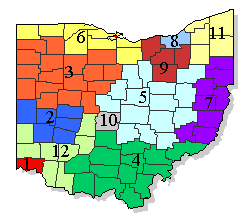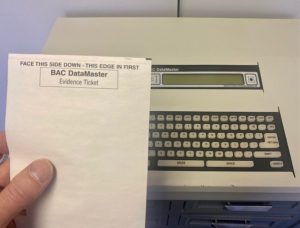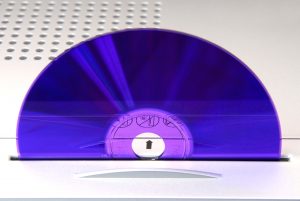 In a DUI case (called ‘OVI’ in Ohio), what happens when evidence is destroyed because a prosecutor does not timely respond to a specific request for that evidence? It depends on the jurisdiction. In ten of Ohio’s 12 appellate districts, the case would likely be dismissed. In the other two Ohio appellate districts, there would likely be no sanction. Two appellate cases from two Ohio cities illustrate the outcome depends, in large part, on where the case is heard.
In a DUI case (called ‘OVI’ in Ohio), what happens when evidence is destroyed because a prosecutor does not timely respond to a specific request for that evidence? It depends on the jurisdiction. In ten of Ohio’s 12 appellate districts, the case would likely be dismissed. In the other two Ohio appellate districts, there would likely be no sanction. Two appellate cases from two Ohio cities illustrate the outcome depends, in large part, on where the case is heard.
Articles Tagged with Destroyed evidence
Discarding Evidence In DUI / OVI Breath-Test Cases
 A police officer discarded evidence that a DUI suspect blew under the ‘legal limit’. According to WCNC, the suspect was involved in a one-car accident and pulled her vehicle into a gas station parking lot. An officer went to the gas station and had the suspect perform field sobriety tests. The officer took the suspect into custody and administered multiple breath tests. The officer obtained two evidence tickets with results from the breath tests. The officer threw-out the evidence ticket with a result ‘under the limit’, kept the evidence ticket with a result ‘over the limit’, and charged the suspect with DUI (called ‘OVI’ in Ohio).
A police officer discarded evidence that a DUI suspect blew under the ‘legal limit’. According to WCNC, the suspect was involved in a one-car accident and pulled her vehicle into a gas station parking lot. An officer went to the gas station and had the suspect perform field sobriety tests. The officer took the suspect into custody and administered multiple breath tests. The officer obtained two evidence tickets with results from the breath tests. The officer threw-out the evidence ticket with a result ‘under the limit’, kept the evidence ticket with a result ‘over the limit’, and charged the suspect with DUI (called ‘OVI’ in Ohio).
What Happens When The Government Destroys Evidence In DUI/OVI Cases?
 Destruction of evidence by the government can violate a defendant’s right to due process of law. Due process violations often lead to cases being dismissed. Using dismissal as a remedy is based on the principle that denying a defendant access to evidence can make a trial unfair. This is particularly true when the evidence is ‘exculpatory’: it tends to disprove guilt or is otherwise favorable to the defendant. In DUI cases (called “OVI” cases in Ohio), the evidence often includes video from a police cruiser, a body camera, or a police station. When such a video is destroyed by the government, does the case get dismissed? Like so many questions in the legal world, the answer is:
Destruction of evidence by the government can violate a defendant’s right to due process of law. Due process violations often lead to cases being dismissed. Using dismissal as a remedy is based on the principle that denying a defendant access to evidence can make a trial unfair. This is particularly true when the evidence is ‘exculpatory’: it tends to disprove guilt or is otherwise favorable to the defendant. In DUI cases (called “OVI” cases in Ohio), the evidence often includes video from a police cruiser, a body camera, or a police station. When such a video is destroyed by the government, does the case get dismissed? Like so many questions in the legal world, the answer is:
it depends.
 Columbus OVI/DUI Attorney Blog
Columbus OVI/DUI Attorney Blog

